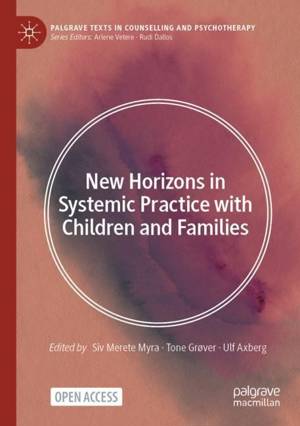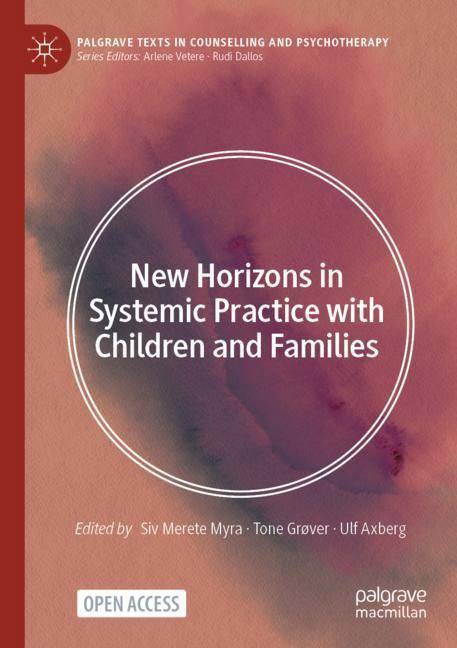
- Retrait gratuit dans votre magasin Club
- 7.000.000 titres dans notre catalogue
- Payer en toute sécurité
- Toujours un magasin près de chez vous
- Retrait gratuit dans votre magasin Club
- 7.000.0000 titres dans notre catalogue
- Payer en toute sécurité
- Toujours un magasin près de chez vous
New Horizons in Systemic Practice with Children and Families
Description
This open access book illustrates how systemic theory, as both a meta-theory and a relational organic theory, can be a suitable framework for understanding and appreciating the new horizons of systemic practice with children and families in their various contexts. The different chapters shed light on how systemic perspectives, as they are presented in their varying contexts, promote hope by giving room for reflections on uncertainty, change, opportunities, interconnections, and differences. The authors describe and reflect on how systemic approaches can be useful for practitioners and make space for a multiplicity of different perspectives that address the needs of children and those assisting them in their various settings, where children grow and develop in the context of their unique needs and challenges. It covers safeguarding children's rights through parental separation and divorce; families experiencing anticipatory grief; parents struggling with substanceuse problems; gender incongruence; eating disorders; systemic perspectives on psychiatric diagnosis; children with disabilities; and systemic practice in school. The book will be a source of inspiration, as the purpose is to illustrate the systemic field in constant motion, which encourages, maybe even requires a plurality of theories, perspectives and approaches. But, most importantly, it demonstrates how working with children and families is a privilege.
Spécifications
Parties prenantes
- Editeur:
Contenu
- Nombre de pages :
- 203
- Langue:
- Anglais
- Collection :
Caractéristiques
- EAN:
- 9783031381102
- Date de parution :
- 13-10-23
- Format:
- Livre broché
- Format numérique:
- Trade paperback (VS)
- Dimensions :
- 148 mm x 210 mm
- Poids :
- 267 g






